

Did you know that...
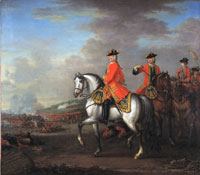
King George II (1727-1760) was the last British Monarch to lead his troops in battle? At the Battle of Dettingen in southern Germany on 27 June 1743, King George’s British troops and Austrian allies, some 40,000 strong, defeated a French army of 60,000 men.
Did you know that...
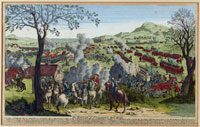
The last full-scale battle to take place on British soil was fought at Drumossie Moor, to the north east of Inverness, on 16 April 1746? Better know as the Battle of Culloden, the engagement marked the last of the Jacobite risings - popular attempts to re-instate a Stuart monarch on the throne of Britain. Charles Edward Stuart, also known as ‘Bonnie Prince Charlie’ or ‘the Young Pretender’, led the Jacobites at Culloden.
Did you know that...
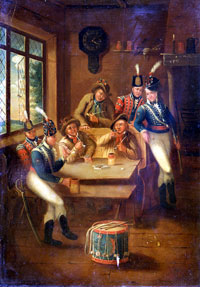
Eighteenth century soldiers drank up to 2.3 litres (4 pints) of beer a day? Luckily, this was a weak form of ale known as small-beer. This was drunk as a substitute for clean water. The soldiers usually ate two meals a day consisting of boiled beef and bread. Sometimes they also had cheese, bacon or pork. Only a few soldiers were housed in barracks, most lived in temporary accommodation such as taverns.
Did you know that...
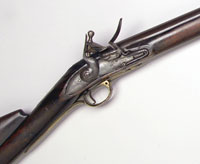
The British soldier of this period was armed with a weapon known as a ‘Brown Bess’? This was the popular name applied to several different models of smooth-bore flintlock musket, which were used by the Army from the late 17th century to the early 19th century. ‘Brown’ may relate to the ‘browning’ of the barrel which helped prevent rusting, or to the colour of the musket’s walnut stock (earlier weapons commonly had their stocks painted black). ‘Bess’ may derive from ‘buss’, a shortened form of ‘harquebuss’, the predecessor of the musket.
Did you know that...
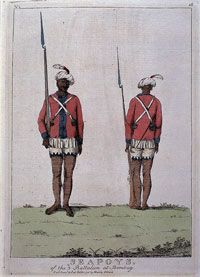
Asian and black soldiers have been a part of British military history since the 17th century? Throughout the evolution of the early British Empire, the garrisons established across the world could often only be sustained by the widespread deployment of troops recruited overseas, and in the past the British Army enlisted soldiers in almost every country in which it maintained garrisons. The British were quick to recognise the fighting qualities and potential loyalty of such soldiers. Many had their own long histories as warrior peoples and combined Western weapons and military training with their own military skills.
